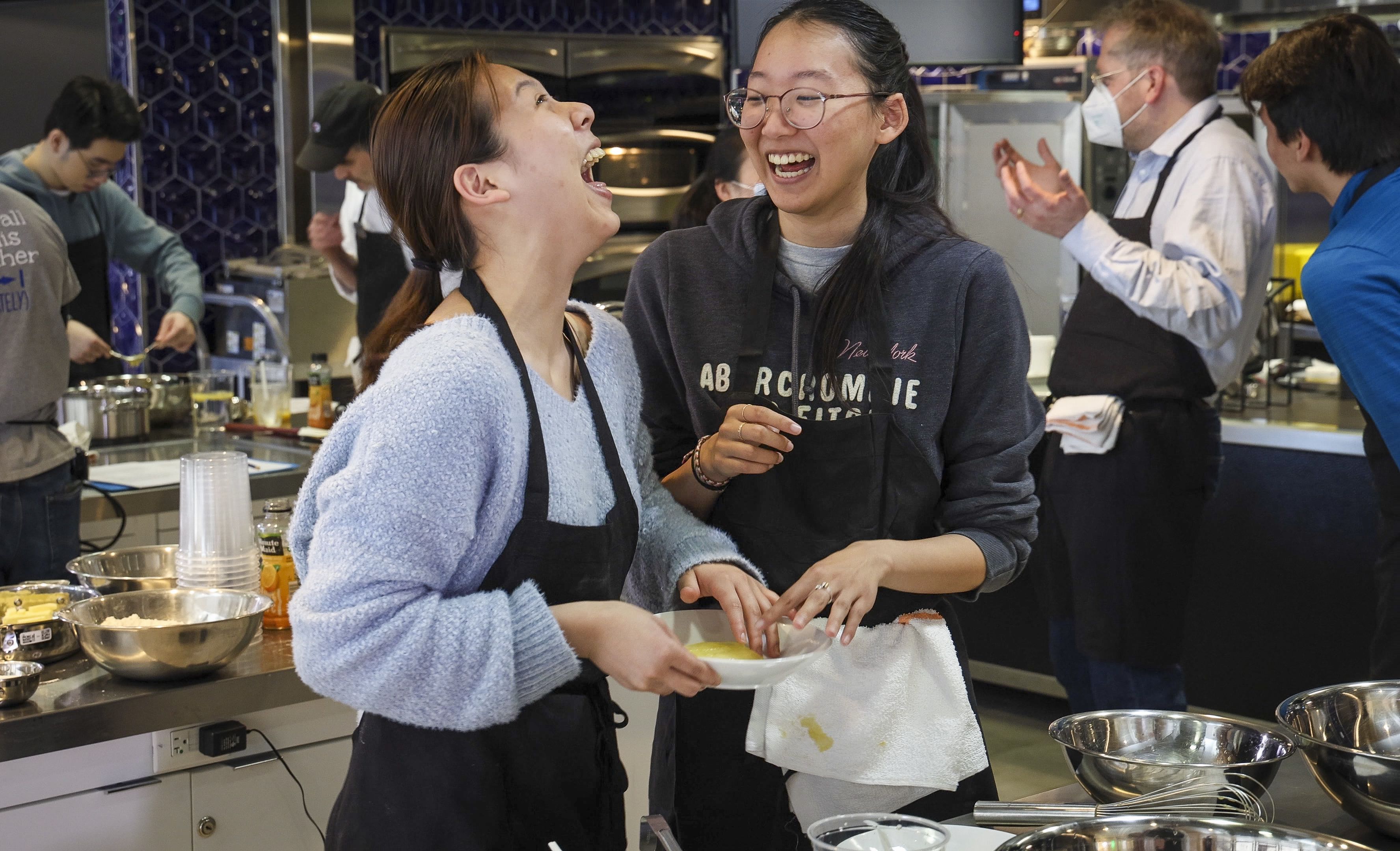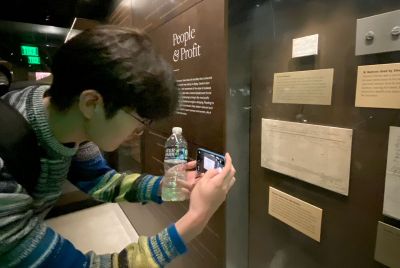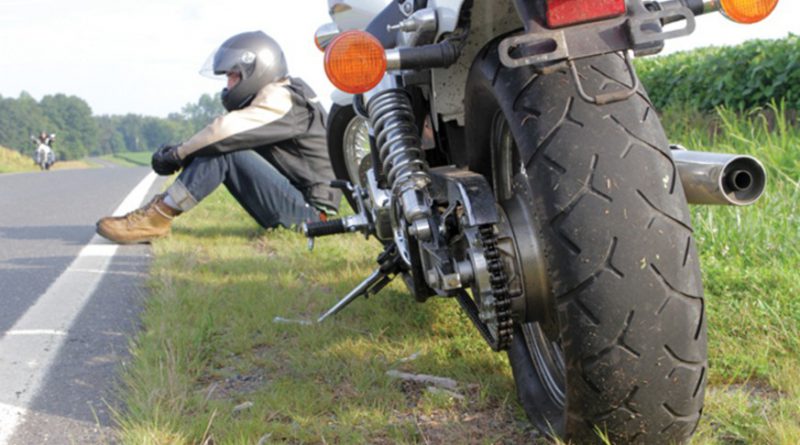Learning New Subjects During Spring Breakthrough 2023

Motorcycle Revival: Repairing and Maintaining A Classic Bike
For this Breakthrough project students got their hands dirty learning basic motorcycle repair and maintenance on a classic motorcycle: a 1975 BMW R90/6, affectionately known as an “airhead,” reflecting its air-cooled engine, as well as on a Triumph Bonneville T120, a bike in the manufacturer’s “modern classic” line.
There was a lively discussion of surprising issues that are related to thinking in terms of “repair” rather than “replacement.” UVA professor Matthew Crawford’s book and TED talk “Shop Class as Soul Craft” offered a useful conceptual frame for this issue. The class also watched stories by motovloggers Noraly Schoenmaker (“Itchy Boots”) and Caroline (“Doodle on a Motorcycle”).
The course was taught by music professor Scott Lindroth, assisted by Bill Snead of University Communications.
“Motorcycling experienced a resurgence during the pandemic because it perfectly combines exhilarating travel with social distancing. More women are taking up motorcycling, and manufacturers are producing smaller, low-displacement bikes that are comfortable for new riders and ideal for daily commutes and country rides. For this Breakthrough project we will repair a classic motorcycle: a 1975 BMW R90/6, affectionately known as an “airhead,” reflecting its air-cooled engine.”
Scott Lindroth, Professor of Music

Cooking Through Science
During the Cooking Through Science course led by Patrick Charbonneau, Professor of Chemistry and Physics, and Coleman Norris; executive chef of The Commons, The Skillet, and JB’s Roasts and Chops, undergraduates took their classroom chemistry and physics lessons straight to the kitchen to construct and deconstruct various foods. During a fun and intense four days, they learned about the curdling process to make cheese, the gelation process to make chocolate mousse, and the spherification process to make honey pearls and orange juice noodles, to name a few. (They also learned that soy sauce didn’t work well because the excess salt interfered with crosslinking calcium ions and alginate .)
-

First-years Laura Han, left, and Aiden Klein make croquembouche, a tower of caramel-covered cream puffs held together by threads of spun sugar. -

A student spherifies orange juice using sodium alginate and calcium chloride. -

From left, junior Jerry Xin, sophomore Dasol Lee, chef Coleman Norris, and first-year Connor Biswell prepare the banquet meal on the last day of class.
On the final day, they put all of their lessons together to create a banquet meal of steak, asparagus with mushrooms, egg soufflé, bread and cheese, chocolate lava cakes, and croquembouche, a tower of caramel-covered cream puffs held together by threads of spun sugar.
“The chemistry helped me understand the cooking better…like what you’re actually doing when you’re heating something up… I’m not necessarily a sciency person but I’m more of an analytical person,” said first-year Aiden Klein, who is creating an arts-based major.
Listening to a science lecture about the different formations of chemicals to create properties of foods would be interesting, but it’s so much cooler to be able to learn the principles and then immediately go straight to the kitchen and turn that into something edible and something visual.
Aiden Klein

The Stories We (Choose to) Tell Ourselves
To help students understand the stories behind pressing contemporary issues, political scientist and vice provost for undergraduate education Candis Watts Smith took them to Washington, D.C. There, they explored not just how historical narratives are framed in museums and monuments, but how these are connected to their own lives.
-

Senou Kounouho hangs a card with his favorite sounding word, “melancholy”, on a wall of favorite words left by previous visitors at Planet Word in Washington, D.C. During the visit to Planet Word, the class explored the history of the English language and the ways we use it to tell our own stories. Photo by Celine Wang.
-

Aritra Acharjee, Hung Le, Eduardo Penaranda Romero and Tajuan Gibbison stand in a huge green Adirondack chair in front of the main building at Duke Ellington School of the Arts in Georgetown. -

Celine Wang, Comfort Markwei and Mariana Meza visit the Planet Word Museum for an immersive language and word-centered experience. Photo by Comfort Markwei.

“One of the things they did collectively was to connect what they learned from our time in DC from what they believed themselves to know about Duke—and the stories we at Duke tell about our own history, both long past and very recent,” said Smith, who led the Spring Breakthrough course along with public policy lecturer Catherine Admay and Michael Domeracki, director of academic engagement for the social sciences.
The program included shadowing Duke alumni working in Washington, and reflection sessions where the students shared ideas about how history is told. “Duke is a community, but it is a heterogenous and diverse one with a wide range of preferences and perspectives,” Smith said. “We have to value this diversity in our everyday language and in the stories we choose to tell about ourselves and about Duke.”
The fact of the matter is that these students are so bright, so insightful, and so open to thinking about issues from a number of angles. They were totally engaged with the narratives they saw in DC, and were keen to connect what they learn in DC with their own lives at Duke.
Candis Watts Smith

